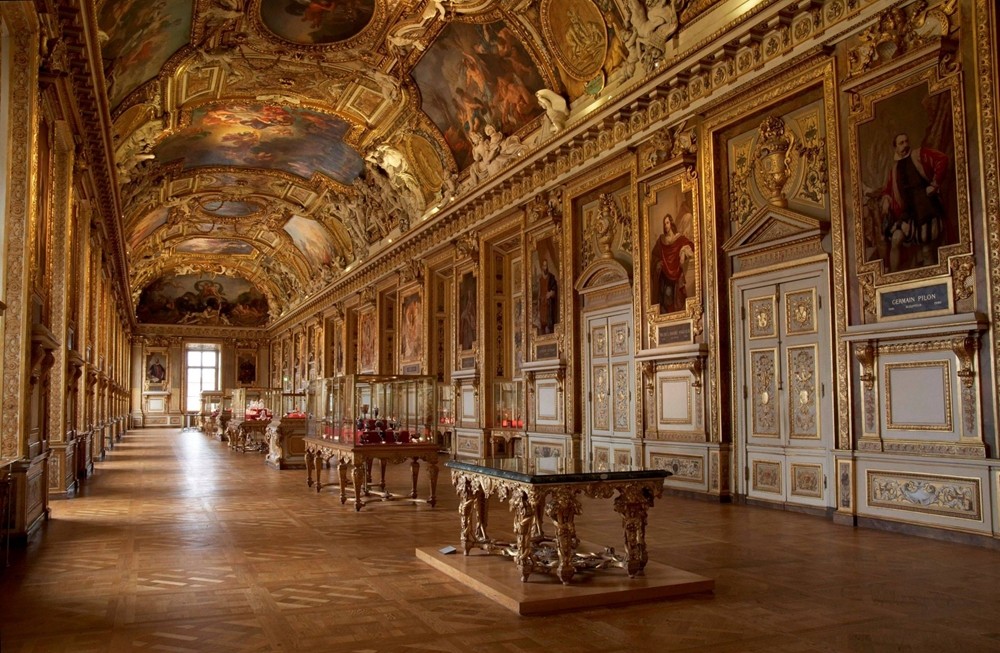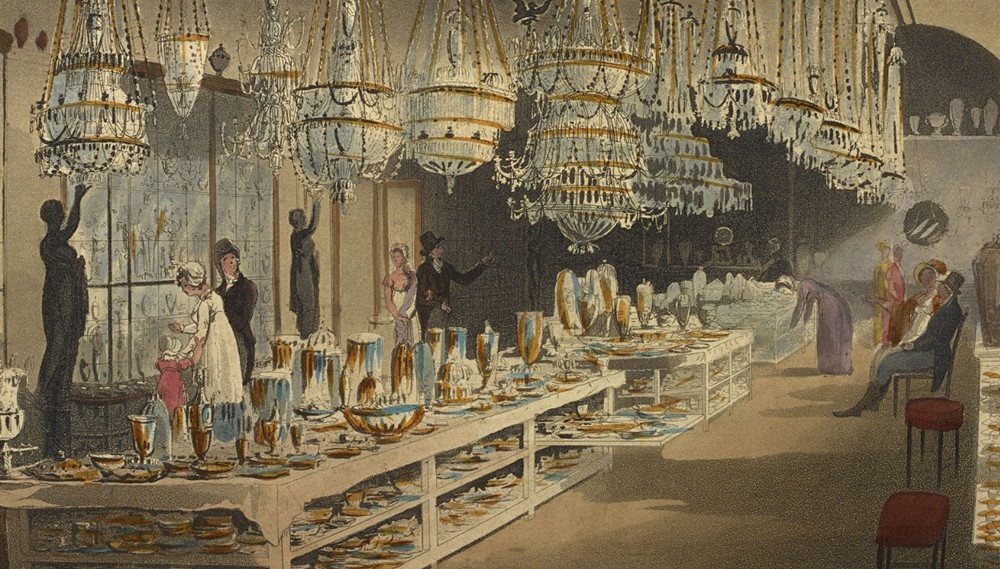Luxury sectors
The best representative luxury sectors in luxury industry
The Pinnacle Sectors of the Luxury Industry
Luxury is a multifaceted realm, with certain sectors epitomizing its essence more vividly than others. High fashion, fine jewelry, exquisite watchmaking, opulent leather goods, luxury automobiles, five-star hotels, private aviation, and prestigious real estate stand out as the quintessential representatives of the luxury industry. These sectors not only define the standards of elegance and exclusivity but also set the benchmark for exceptional craftsmanship and unparalleled service.
How can an industry be considered representative of luxury?
Whether a sector is considered luxury depends on the range and quality of the products and services it offers. For example, companies in the hotel, travel, perfume, and real estate industries may be considered luxury based on the level of exclusivity and refinement of their offerings.
Certain sectors, such as business aviation, are inherently luxurious due to their exclusive offerings. However, in other sectors, such as jewelry and watchmaking, it is only the highest quality products that are considered luxury, such as high jewelry and high watchmaking.
What is the relationship between fashion and luxury?
Luxury and fashion are often closely connected, although they are distinct concepts. This relationship is paradoxical, as fashion values novelty and change, while luxury strives for timeless style.
What role does culture play in the identity of luxury brands?
Luxury brands often prioritize cultural sponsorship as a means of aligning themselves with values of refinement and excellence.
Why are luxury groups often relatively young conglomerate?
Many of the major players in the luxury industry only emerged in the latter half of the 20th century. For example, Kering was founded in 1963, The Swatch Group in 1983, LVMH in 1987, and Richemont group in 1988.
What do luxury brands have in common?
The values of excellence, rarity, premium price, and elegance impart a strong sense of coherence to the concept of luxury.
Which industries are typically associated with the luxury sector?

Luxury is characterized by exceptional quality and can be found in a variety of goods, including high-fashion clothing, fine watches, high-end jewelry, and leather goods. It is also present in industries such as luxury vehicles, yachting, premium wines and spirits, luxury real estate, upscale hotels, and business aviation.
- Fine jewelry is the art of creating jewelry from precious stones, fine stones, pearls, and precious metals.
- Fine watchmaking is the art of producing superior quality watches, n which everyone can appreciate the meticulous work and the know-how of the watchmaker.
- High fashion is the art of making superior quality clothing from high-quality materials.
- Luxury cars are known for their performance and aesthetic design.
- High gastronomy is the art that combining a rare taste experience with a visual pleasure.
- Fine leatherwork is the art of processing leather to produce the highest quality travel goods, as well as many other accessories.
- Luxury hotels have mastered the art of hospitality by providing superior comfort and service to their customers.
- Luxury real estate offers top quality properties that highlight the comfort with the beauty of the location.
- Fine perfumery is the art of blending natural or synthetic fragrances to create high quality scents.
- Luxury fairs are the art of organizing exhibitions that wow audiences through luxury themes.
- Luxury travels is the art of planning unforgettable travel experiences.
- Business aviation makes the air transportation experience as fast as comfortable.
- Luxury yachts are offering unparalleled seafaring lifestyle by elegantly sail on the open waters.
What is the history of the luxury industry and how has it evolved over time?

During ancient times, luxury goods were often associated with royalty and the ruling class. Items such as gold, precious stones, and rare textiles were seen as symbols of wealth and power. Luxury items were also often used as gifts and offerings to the gods.
In the Middle Ages, luxury goods were often associated with the Church and its clergy. The Church was a major patron of the arts, and many luxury items such as illuminated manuscripts, goldsmith work, and tapestries were commissioned by the Church.

During the Renaissance, luxury goods became more accessible to the rising merchant class, who used them as a way to display their wealth and social status. The rise of global trade and exploration also brought new luxury items such as spices, silks, and exotic animals from around the world.
In the 19th century, the Industrial Revolution and the rise of capitalism brought new opportunities for the luxury industry. Mass production allowed luxury goods to be produced on a larger scale, making them more affordable and accessible to the growing middle class.

Today, the luxury industry continues to evolve and grow. Luxury brands have expanded their offerings beyond traditional categories such as fashion and jewelry to include travel, hospitality, and experiences. The industry also faces challenges such as sustainability and changing consumer preferences.

More info about luxury sectors
What is the luxury industry?
The luxury sector refers to industries that produce and sell luxury goods and services.
These sectors cater to consumers with high disposable income who are willing to pay higher prices for high quality items and luxury experiences.
What is the high fashion industry?
The high fashion industry is a sector of the luxury goods market that manufactures and sells high quality clothing, shoes and accessories.
These fashion brands are known for their unique designs, superior craftsmanship and the use of quality materials.
What is the jewelry industry?
The jewelery industry is a sector of the luxury market that manufactures and sells high quality jewellery, such as rings, necklaces, bracelets, and earrings.
Often made of precious metals and gemstones, these pieces are known for their craftsmanship and attention to detail.
What is precision watchmaking industry?
Luxury watchmaking is the luxury market sector that manufactures and sells high-end timepieces.
Known for precision, precision and craftsmanship, these timepieces are often made from precious metals and high-quality materials.
What is the fine leather goods industry?
The luxury leather goods industry is a luxury market encompassing a wide range of high-end products such as handbags, wallets, belts, shoes and other accessories made from the finest leather materials.
Known for superior quality and attention to detail, fine leather goods are carefully crafted by skilled artisans using traditional techniques passed down from generation to generation. The leather used in these products is of the highest quality and is often sourced from the world’s most reputable tanneries.
What is the luxury car industry?
The luxury car industry is the sector of the luxury car market that produces and sells luxury vehicles.
Known for performance, comfort and craftsmanship, these vehicles are often built with quality materials and advanced technology.
What is the luxury hotel industry?
The luxury hospitality industry is a market that includes high-end properties that offer superior service, sophisticated amenities and luxurious accommodations. Often located in prime destinations, these hotels are known for their prestigious addresses, impeccable service and unparalleled attention to detail.

What is the luxury fragrance industry?
The luxury fragrance industry is a market that encompasses high quality perfumes, colognes, and fragrances made from the finest raw materials and presented in elegant packaging.
The industry is driven by creativity, innovation and exclusivity, with luxury brands constantly pushing the boundaries of what is possible in fragrance and design.
What is the high gastronomy industry?
Fine dining is a market that includes fine dining restaurants and chefs, offering exceptional dining experiences and innovative haute cuisine. Often led by renowned chefs, these restaurants offer carefully curated menus that showcase the best in terms of ingredients and preparation.
Gastronomy is not just the food, it’s the ambience, the service, and the whole dining experience.
What is the business aviation and private jet industry?
The business aviation and private jet industry is a market that includes the ownership and operation of private aircraft for business and personal use. It offers a range of services including aircraft charter, aircraft management, aircraft sales and maintenance.
Driven by exclusivity, efficiency, the industry offers a wide range of aircraft options along with luxury amenities such as in-flight catering, concierge services to provide a safe, efficient and luxurious way to travel.
What is the yacht industry?
The yacht industry is a luxury market sector that manufactures and sells high-end boats and watercraft.
Known for their size, performance and luxury amenities, these yachts are often used for pleasure cruising and entertainment.
Brands such as Azimut, Ferretti, Sunseeker, Princess Yachts and Riva are considered part of the yacht industry.

What is the Wine & Spirits Industry?
The wine and spirits industry is the upscale market sector that produces and sells high quality wines and spirits.
Renowned for their quality, craftsmanship and taste, these products are often associated with luxury and exclusivity.
What is the luxury travel industry?
The luxury travel industry is a market that encompasses high-end travel experiences that offer exceptional service, sophisticated amenities and luxurious accommodations. From jets and luxury cruises to bespoke tours and five-star hotels, the industry caters to discerning travelers who demand the very best in service, comfort, and exclusivity.
What is the luxury goods industry?
The luxury goods industry is a market that encompasses a wide range of high-end products such as fashion, jewelry, watches, fine leather goods, fine fragrances and other luxury goods. These products are known for their exceptional quality, craftsmanship, and attention to detail.
What is the luxury services industry?
The luxury services industry is a market that encompasses a wide range of high-end services such as private jets, luxury yachts, private concierges, high-end spas and other luxury experiences.
























